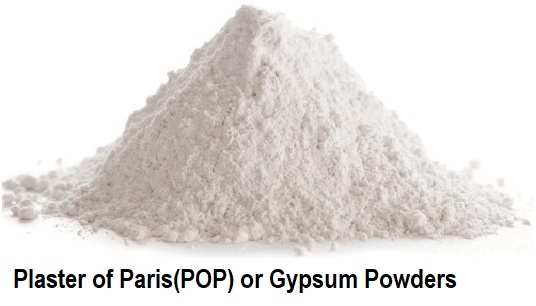
Plaster of Paris (POP) or Gypsum Powders: Largest Consuming Industries Worldwide
Plaster of Paris (POP) or Gypsum Powders: Exim Code and Largest Consuming Industries, Top Exporters, and Importers Worldwide
Plaster of Paris (POP) or gypsum powders are widely used materials in various industries due to their exceptional properties and versatility. From construction to art and crafts, POP finds extensive applications. The Exim code for POP and gypsum powders discusses the largest consuming industries and highlights the top exporters and importers worldwide.
Exim Code for Plaster of Paris (POP) or Gypsum Powders: The Exim code, also known as the Harmonized System (HS) code, is an internationally standardized system for classifying traded products. Plaster of Paris (POP) and gypsum powders are categorized under HS code 252010. This code is used by customs authorities to identify and track the import and export of these materials across borders.
Largest Consuming Industries of Plaster of Paris (POP) or Gypsum Powders:
- Construction Industry: Plaster of Paris and gypsum powders are extensively used in the construction industry for creating decorative elements, false ceilings, and wall finishes. The materials offer excellent fire resistance, sound insulation, and ease of application, making them a popular choice among architects and builders.
- Art and Crafts: POP is widely utilized in the art and crafts industry for sculpting, mold making, and creating intricate designs. Its ability to set quickly and retain fine details makes it a favored medium for artists and craftsmen worldwide.
- Medical and Dental: Gypsum powders are employed in the medical and dental fields for various applications. In dentistry, it is used for making dental models and impressions. In orthopedics, POP casts and splints are utilized for immobilizing fractured bones during the healing process.
- Agriculture: Gypsum powders are used in agriculture to improve soil quality and fertility. It aids in enhancing water retention capacity, reducing soil erosion, and providing essential nutrients to plants. Additionally, it helps in neutralizing soil pH and mitigating salinity-related issues.
Top Exporters of Plaster of Paris (POP) or Gypsum Powders:
- Thailand: Thailand is one of the leading exporters of plaster of Paris and gypsum powders. The country boasts high-quality gypsum deposits and a well-established manufacturing infrastructure, allowing it to cater to global demand effectively.
- China: China is renowned for its gypsum production and export capabilities. The country has abundant gypsum resources and a vast network of manufacturers. Chinese exporters offer a wide range of POP and gypsum powder products to meet diverse industry requirements.
- Iran: Iran is another prominent exporter of plaster of Paris and gypsum powders. The country possesses significant gypsum reserves and has established itself as a key player in the global market. Iranian manufacturers supply gypsum products to various industries worldwide.
Top Importers of Plaster of Paris (POP) or Gypsum Powders:
- United States: The United States is a major importer of plaster of Paris and gypsum powders. The construction industry, in particular, drives the demand for these materials in the country. Additionally, the art and crafts sector also contributes to the import volume.
- India: India has a substantial demand for plaster of Paris and gypsum powders due to its growing construction industry and infrastructure development projects. The country imports gypsum products to meet its domestic requirements.
- United Arab Emirates: The United Arab Emirates (UAE) is a significant importer of POP and gypsum powders. The construction boom in the UAE has fueled the demand for these materials, especially for creating decorative elements and false ceilings in commercial and residential projects.
Plaster of Paris (POP) and gypsum powders are essential materials in various industries, including construction, arts and crafts, and the medical sector. Understanding the Exim Code for these products (2520.10) enables efficient global trade. Thailand, Iran, and China are among the top exporters, while the United States, India, and the UAE are prominent importers of POP and gypsum powders.
